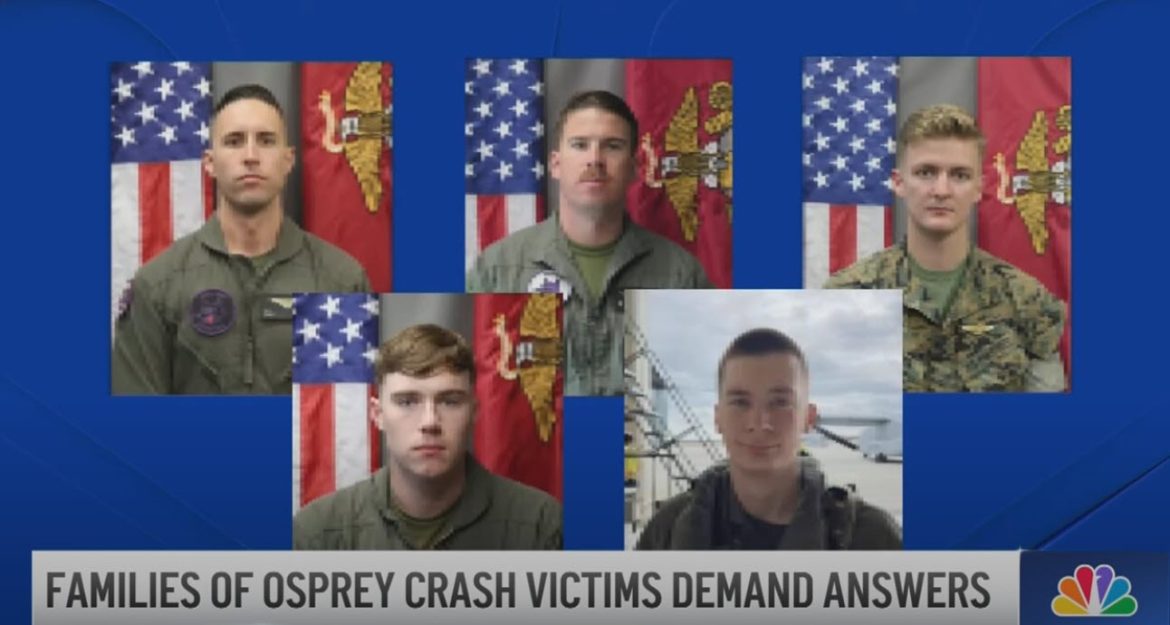Family members of airmen who died in an Osprey helicopter crash in 2022 in California are set to attend a crucial hearing on Capitol Hill on Wednesday. Among them are Michelle and Brett Strickland, along with three other families who have sued the manufacturers of the Osprey helicopter in May.
The tragic incident occurred near Glamis, west of the California-Arizona border, during a training exercise, resulting in the deaths of five Marines from Camp Pendleton. The hearing, organized by the Subcommittee on National Security, will focus on oversight and safety concerns regarding the Department of Defense’s Osprey program.
Although the families will not be speaking at the hearing, their presence underscores the personal and emotional stakes involved in the scrutiny of the Osprey’s safety record. The hearing aims to address critical issues surrounding the helicopter’s operational safety and the adequacy of the Department of Defense’s oversight mechanisms.
The Stricklands and other affected families hope that their attendance will underscore the importance of rigorous safety standards and accountability in military aviation programs. Their lawsuit against the Osprey manufacturers highlights the urgent need for thorough investigations and improvements to prevent future tragedies.
The Subcommittee on National Security will hear testimonies from various experts and officials, focusing on the technical, operational, and managerial aspects of the Osprey program. The goal is to identify and rectify any deficiencies that might compromise the safety of service members operating these helicopters.
The Osprey helicopter has a history of controversies and safety concerns, with several high-profile accidents raising questions about its design and reliability. The outcome of this hearing could potentially influence future policies and safety protocols within the Department of Defense.
As the hearing proceeds, the families’ silent testimony through their presence serves as a poignant reminder of the human cost of any lapses in safety and oversight. The hope is that their involvement will lead to meaningful changes that enhance the safety of military personnel and honor the memory of those lost.



